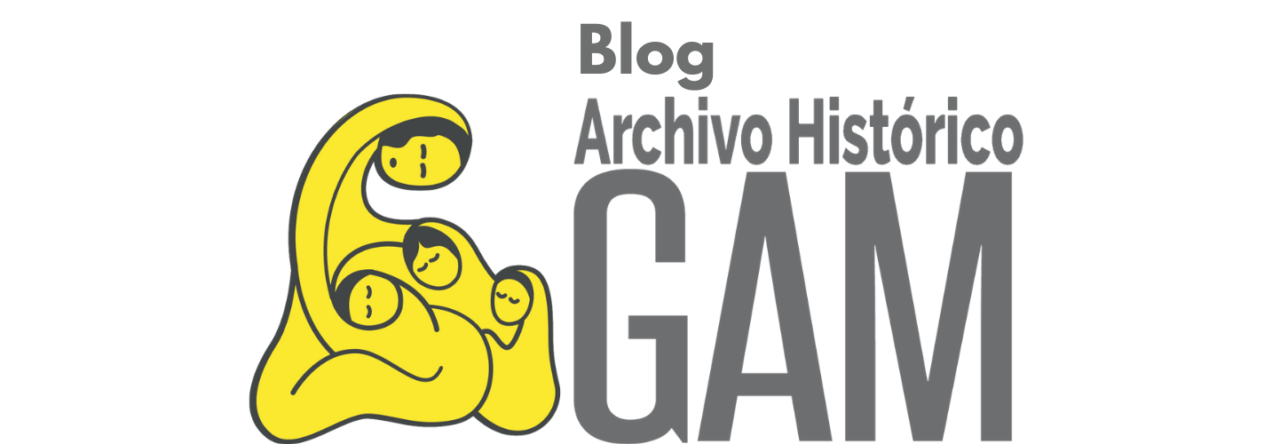Dec 12, 2017 • Rosemary Cohen
My name is Rosemary Cohen, and I’m a senior history major at Haverford. I got involved with the Grupo de Apoyo Mutuo project because I am a research assistant for Brie Gettleson, a research and instruction librarian at Magill Library, and Brie is a key part of the GAM project. I followed her into the project and took on my own role. I work closely with the six Digital Scholars Compañeros on projects and I also act as an intermediary between the student workers and the library staff.
I am excited to be involved in this project because I conducted research on the GAM with Brie last year. It’s satisfying to see the project develop with the hiring of our two-year postdoctoral fellow and project manager, Alex Galarza. I have studied neoliberalism and US empire in Latin America in History, English, and Spanish classes, so this project was also exciting to me academically. I went on a school-sponsored trip to Mexico City and Puebla, Mexico last January for a migration field study, during which we visited migration centers, shelters, and advocacy groups working on Central American migration. I met with people migrating North from El Salvador, Honduras, and Guatemala, and I was able to further piece together the links between US capitalist and military involvement in Latin America and the experiences of political/economic refugees from Central America, especially relating to the experiences with the US/Mexico border. The knowledge I have gained in my classes and from the incredible opportunity to travel and study in Mexico contribute immensely to this digital scholars project because the documents we are working with themes that I have studied in depth. I have also been able to apply my Spanish language skills to the documents I have been reading, many of which are from Guatemala. I traveled with friends to Lake Atitlán in Guatemala two years ago, and many of the documents I come across in our archival research reference towns and sites that I have visited.
During the month of November, the Compas have been deeply immersed in a pedagogical exercise using the Swarthmore College Peace Collection. Swarthmore’s Peace Library is a branch of the College’s Special Collections that holds archival material on global issues of peace. The collection includes dozens of documents about Guatemala, mostly from the 1980s to 1990s. Our group was tasked with digitizing and organizing these documents. Our goals were to hone archival skills, practice reading, analyzing, and taking notes on primary documents, and gain a deeper knowledge of the period of Guatemalan history that we will be working on when we transition to the GAM archive.

After visiting the archive at Swarthmore to digitize the materials, the Compas began to engage with the texts and think critically about ways to reorganize them while honoring them as sensitive and rich stories. The Compas read hundreds of pages of documents, and each document was read by at least two Compas. We met weekly to discuss what we had learned from our readings and worked together to interpret themes and patterns. With the help of the library staff, the group decided on a theme-based organization method. We organized the documents in their original order, and instead of moving them around to create an archival narrative, we attached searchable digital tags to each document. This allowed us to respect the original organization of the archive while creating a space to highlight and better interpret the themes that were most interesting to us. Following much thoughtful deliberation over phrasing and which topics covered by the documents merited a tag, the group came up with a list of themes that would create a network of themes to group the documents:
- Children
- U.S. empire
- NGO-response
- Sexual violence
- Women
- Judicial system
- Refugees Labor Movements
- The Church
- Rigoberta Menchu
- Nahamán Carmona López
- Guatemalan Activist Group
- Military/Police
- Indigenous resistance
This project encouraged our group to learn to work together, to bounce ideas off each other in a meaningful way, and to support the work of everyone on our team. Each group member developed their own interests within the archive, and many were able to incorporate these documents into their academic classes at Haverford and Bryn Mawr.
To me, this project is about forming solidarity with GAM and the people whose lives have been affected by ongoing, US-sponsored, military violence in Guatemala. This project is about honoring the victims of that violence and protecting the archive that holds their stories. Something the group has been grappling with and will continue to grapple with throughout the entirety of this project is the fact that our work is not, and will never be, neutral. We acknowledge that archival work is never objective, so it will be imperative for our group to practice thoughtful self-awareness and reflexivity in our work.
The work the Compas have done this fall has propelled each of us forward to be able to interpret and organize archival documents on this subject. Moving forward, I am hopeful that we will develop skills to pose research questions out of the archives we work with, and that all of our Compas feel prepared to look at a much larger group of primary sources. I also hope that we can engage in group readings of secondary materials on the dictatorship period in Guatemala. Personally, I aim to focus on themes of US empire and US economic and military involvement in Guatemala during this period. With these skills and knowledge bases, a few of us will travel to Guatemala City to work directly in the GAM archive this summer, sponsored by Haverford’s Center for Peace and Global Citizenship.
